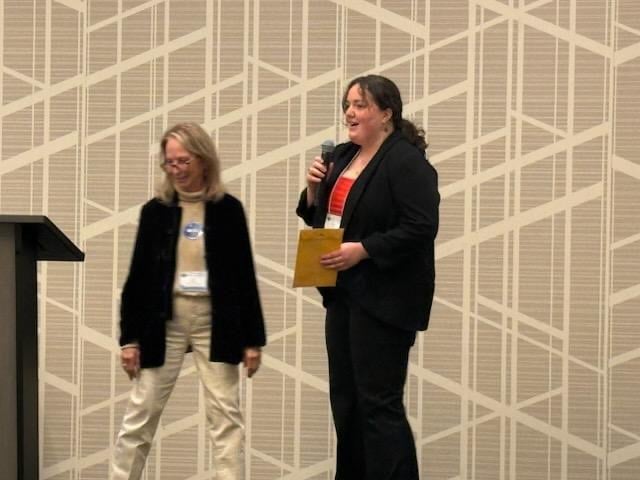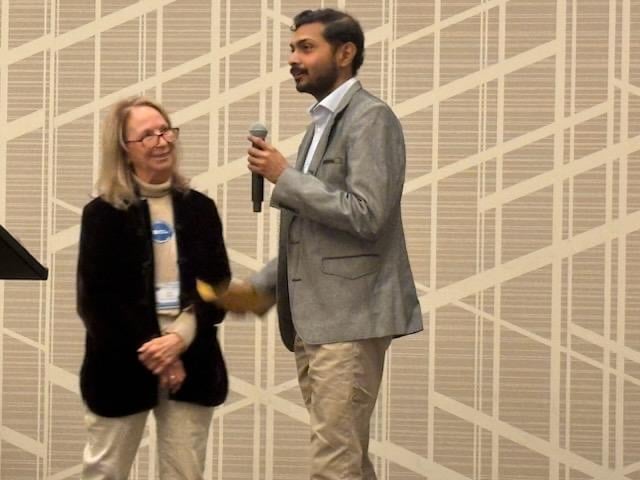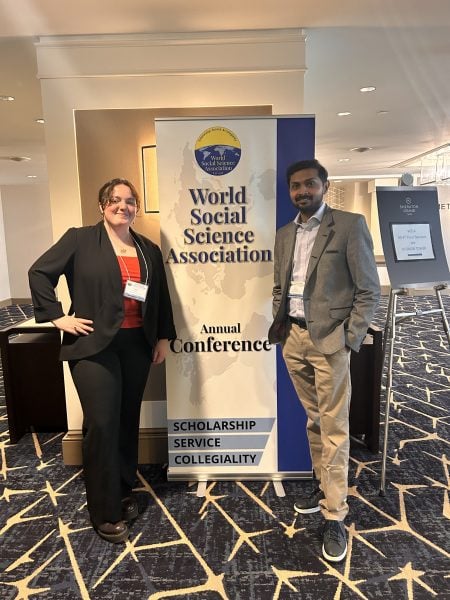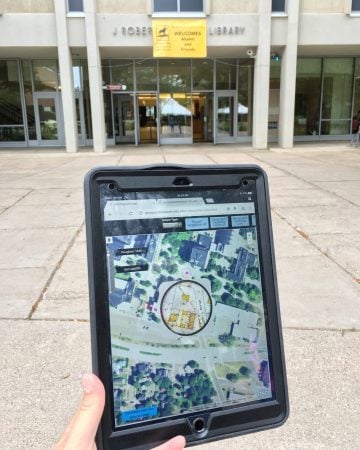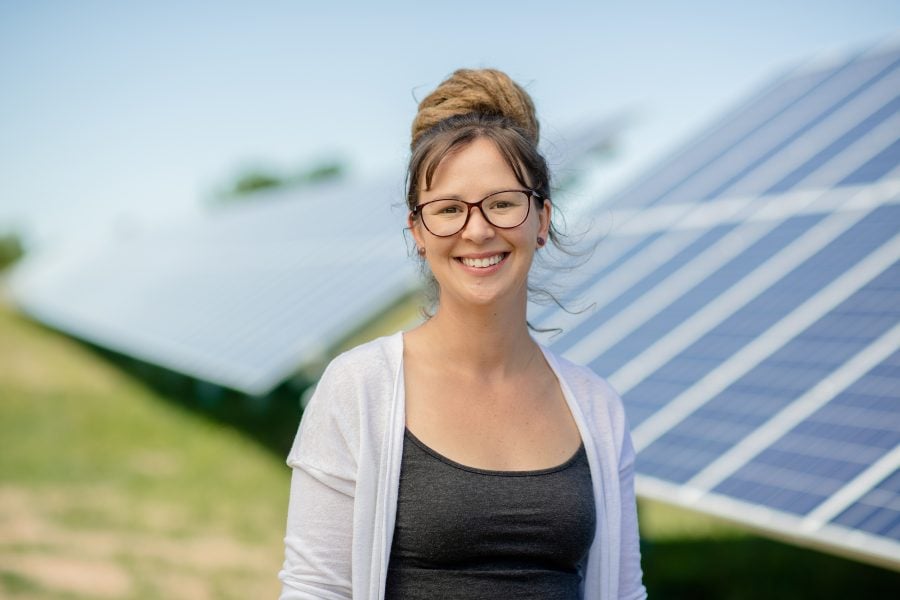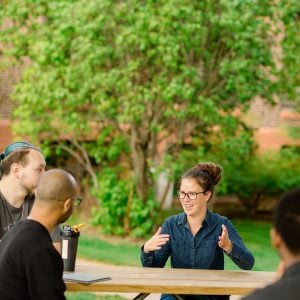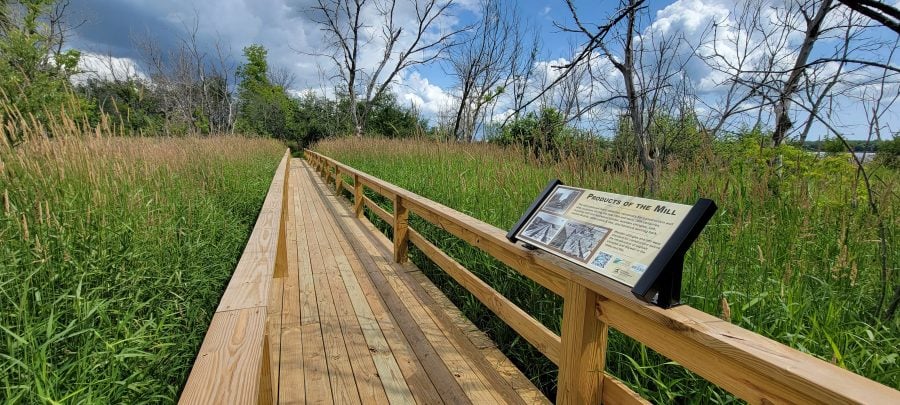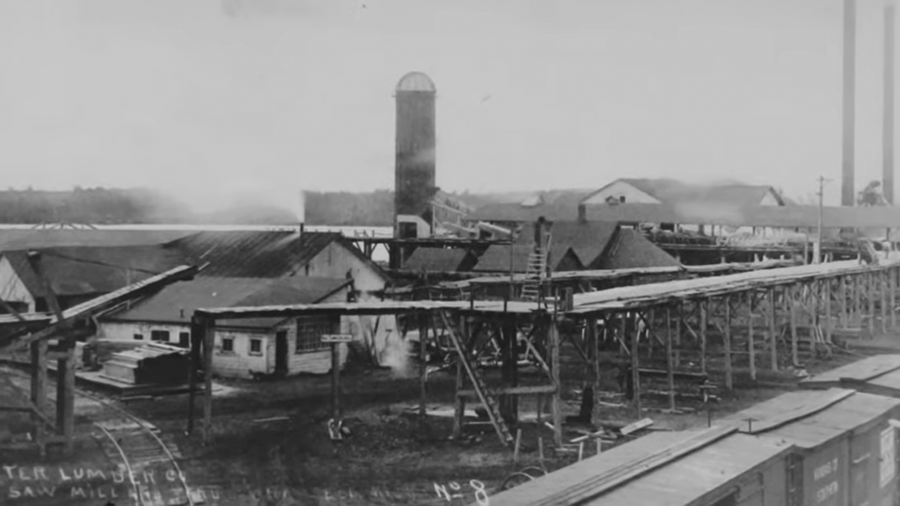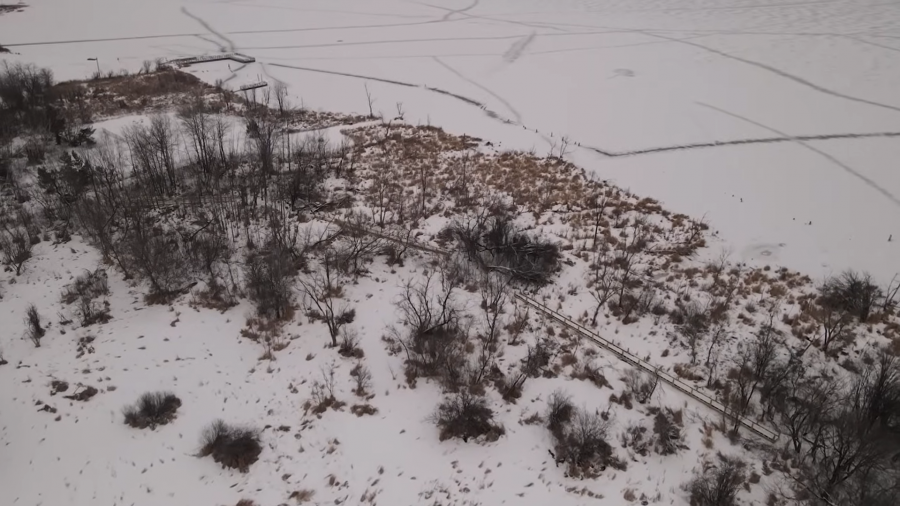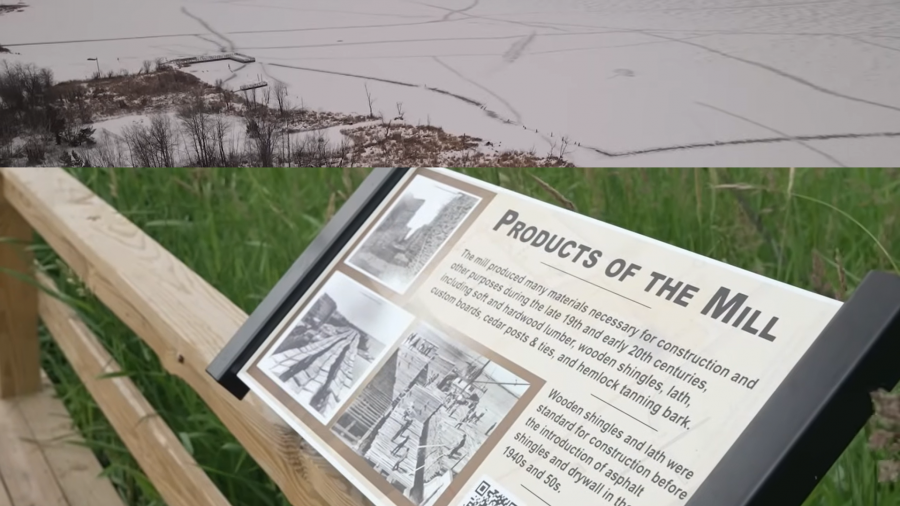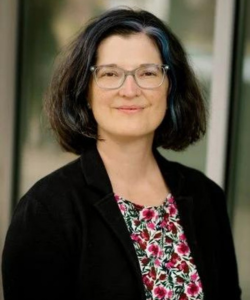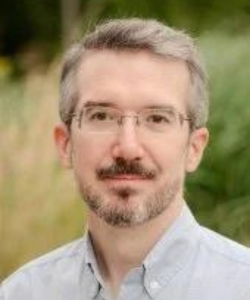A newly established Registered Student Organization (RSO) at Michigan Tech is helping students explore the legal field while making meaningful connections. Law Club at Michigan Technological University creates opportunities for students to explore legal careers, develop professional skills, and engage in meaningful discussions about law and policy.
Law Club MTU meets on Fridays from 5-6pm in the Social Science Annex Lounge in the Annex Building (Building 6, directly behind the Academic Office Building). Free parking is available in Lot 1 or 2, and no permit is necessary after 4pm.
Keep reading to learn more about the Law Club Officers and Advisor stewarding this new student organization.

President: Allie Millina
Allie Millina is a junior majoring in Policy and Law and minoring in Public Health. Allie has gained hands-on experience through a legal research internship with Legal Services of Northern Michigan, where she created case timelines for court, attended client interviews, and observed real settlement hearings and trials. She has worked on policy-focused research projects related to the Global South and interned with Global Detroit where she interviewed refugees about their resettlement process. She also volunteers with Vista Maria, an anti-human trafficking nonprofit.
As President of the Law Club, she is passionate about creating opportunities for students to explore legal careers, develop professional skills, and engage in meaningful discussions about law and policy.

Treasurer: Viviana Cotter
Viviana Cotter is pursuing a degree in Psychology with a concentration in Clinical/Counseling and a minor in Law and Society. She works in the Psychology and Human Factors Department, where she helps manage departmental spending. Additionally, she currently serves as the Treasurer for the Association of Psychology Students at Michigan Tech.
As Treasurer of the Law Club, she is committed to managing the club’s budget and ensuring that funds are allocated to support events, activities, and student initiatives.
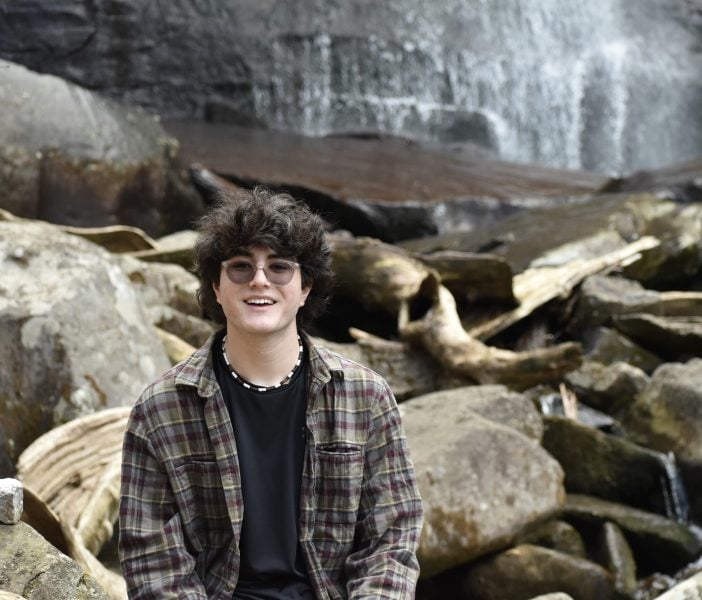
Secretary: Gavin Rozak
Gavin Rozak is a junior Environmental Science & Policy major at Michigan Technological University, with a minor in Law & Society. By exploring the intersections between law, ecology, and environmental health, he hopes to engage with environmental justice and conservation. Passionate about building a more sustainable future, he aims to enroll in law school in pursuit of becoming an environmental attorney. Environmental volunteering, debate, and current experience working in arboriculture have reinforced his love for the environment and what it has to offer.
He is excited about the opportunities the Law Club has to offer students and the positive dialogue on legal issues it hopes to provide. In his role as Secretary, he wishes to learn alongside others about legal pathways and current events.
Advisor: Susanna Peters
Susanna Peters, MS, JD, taught at Wayne State University Law School before coming to Michigan Tech. Her research and teaching interests include constitutional law, intellectual property, cyberlaw, and prisons. She attended the University of Pennsylvania Law School and had the opportunity of clerking for United States District/Circuit Court Judge Morris Arnold and U.S. Magistrate Judge Komives. In private practice she has worked as a litigation associate at a Los Angeles law firm that specialized in labor law. Ms. Peters also has a M.S. in Agricultural Economics from the University of California at Davis, where her emphasis on resource economics stemmed from summers spent in the Alaskan fishing village of Yakutat. Since being at Tech she has taught Cyberlaw, Intellectual Property, Constitutional Law, Law and Society, Orientation to Legal Careers, American Government, and Perspectives sections entitled “Crime and Incarceration” and “The Work of the First Amendment: Selected Topics in First Amendment Law.
Contact Allie Millina, akmillin@mtu.edu, if you have any questions.
